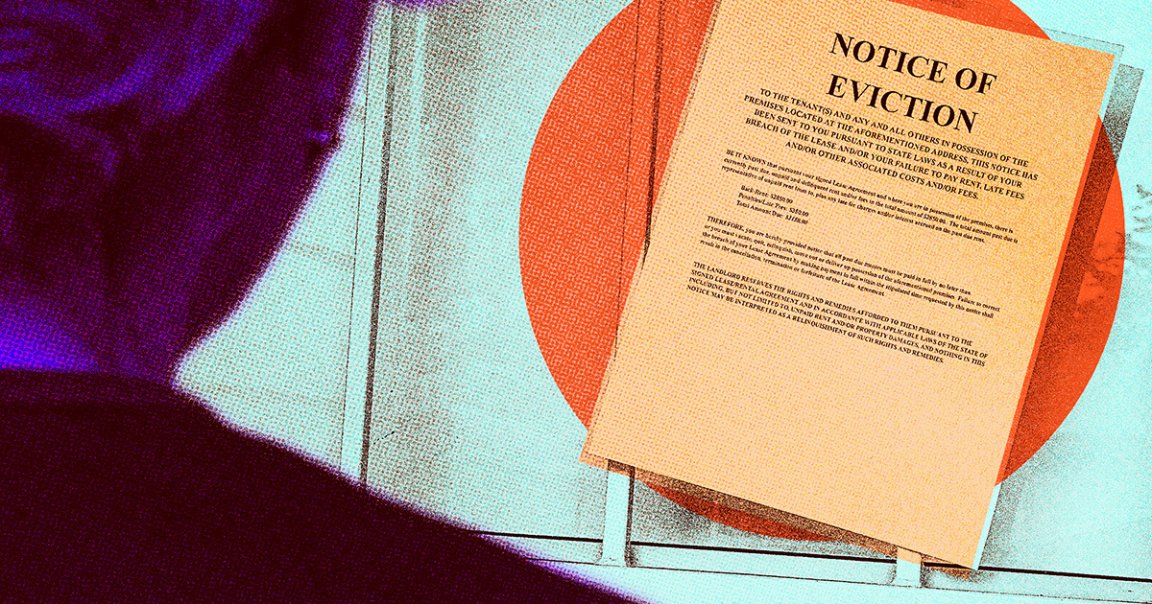
It’s a tale as old as time. A tenant moves into a place with lower-than-average rent, only to discover some undisclosed horror that takes an indifferent landlord weeks to fix.
Now imagine if instead of one landlord, you had hundreds, and in order to get them to fix your hot water problem, you had to look them up on the blockchain.
That’s the new reality for hundreds of renters in the Detroit metro area, a region that has dealt with more than its fair share of corporate fat cats and real estate speculators carving out communities for profit.
Introducing RealT: the self-proclaimed “world leader in real estate tokenization.” A bombshell investigation by writer Aaron Mondry and his team at Outlier Media — a public-service journalism project serving the citizens of Detroit — has uncovered a rampant crypto scheme snapping up subsidized homes in the Motor City’s most underserved neighborhoods, turning their tenants into lab rats for tech bros.
“I’ve been complaining for years, but nobody has ever come out,” one tenant told Outlier. “As far as I can tell, they’re slumlords.”
The scheme works like this. First, a real estate firm purchases homes in low-rent neighborhoods. Next, the firm sells “fractional ownership” shares of its properties on the RealT platform in the form of hundreds of thousands of “RealTokens,” which can be purchased with the cryptocurrency Ethereum.
The property’s management is then outsourced to a local property manager that finds tenants and collects rent. RealT then kicks weekly payments back to investors based on their share of RealTokens against the property’s rental income in the form of stablecoins, such as USD Coin.
In short, it’s a long and complicated way to add yet more uncaring middlemen into an already horrifying rental market that overwhelmingly favors landlords at the expense of tenants’ well-being.
“There’s all sorts of terrible, dystopian scenarios you can imagine with crypto in real estate,” University of Oxford emeritus business professor Andrew Baum told Outlier. “If your roof is leaking, how do you get money out of the company?” Baum asked. “The platform has to get the money from its token investors. Can it do that? Has it set aside enough in reserve?”
Though RealT is based out of Florida, its crypto investors are overseas. The company’s full website — which can only be accessed from outside the US — is packed with investment advice and explainers for lenders, which make it clear that the company’s priority is less about providing housing for communities in need and more about maximizing profit for tokenholders.
One article addressing “tenants who don’t pay their rents” states that “RealT started as a niche which is the Section 8 program. During the COVID crisis, many tenants stopped paying their rents and despite more flexible rules… to evict tenants, RealT has not been impacted by non-payment. With the Section 8 program, the government pays RealT and the Tokenholders directly.”
The platform’s tenants complained to Outlier that conditions in its properties are squalid, with problems like black mold, flooding pipes, and busted air conditioning going unaddressed by the platform’s outsourced management groups.
To give those problems a sense of scale, Outlier reports that RealT-based companies control roughly 1,000 Detroit properties, of which 300 are behind on city taxes, and altogether have accrued over 1,000 blight tickets. All told, Outlier reports, representing at least $2 million in unpaid charges, with 200 facing immediate foreclosure.
If RealT’s property speculators are a pain for the city’s enforcement agencies to hold accountable, it’s a Kafkaesque nightmare for tenants, who cite absentee management companies, missing lease agreements, and confusion around who to even pay rent to.
Under this system, arbitrary evictions and ineluctable foreclosures are common for its largely underprivileged tenants.
With standard real estate speculation, renters at least have a theoretical legal avenue through which to escalate issues with absentee landlords or owners. With RealT, though, the chain of ownership is incredibly difficult to trace, as each property’s true owners are hidden behind digital tokens — allowing RealT to skirt the blame for slum-like conditions which are the direct result of its business model.
“RealT does not oversee or manage any properties,” the company said in a statement, adding that it had recently started working with a new property manager, New Detroit PM, LLC. “This new management team started in earnest in the beginning of December 2024,” it added, and “rapidly expanded the team on the ground to ensure New Detroit had the capacity to meet the numerous challenges facing the organization at that time.”
“Since taking over operations, New Detroit PM has been tirelessly working to identify leases that were not turned over in the transition,” the statement continued. “This involves communication with tenants to execute new leases where necessary. New Detroit is committed to fairness and transparency with its tenants. Those that show a history of timely rental payments will not be penalized for the absence of a lease due to no fault of their own. New Detroit’s representatives are going from property to property introducing themselves, providing literature on how to contact them, renewing leases and informing tenants how to submit home maintenance requests through its online portal. New Detroit PM also has organized in-person community meetings where existing and prospective tenants can ask questions, provide feedback, and meet the New Detroit PM team.”
“Repairs are covered costs by the holding company owning the property,” it added.
But if the library of blight tickets linking back to the platform are any indication, it seems like the current reality is “out of sight, out of mind.”
As crypto grifts enjoy renewed fervor thanks to Donald Trump’s push to legitimize the blockchain as a serious financial mechanism, it remains to be seen what — if any — rights lawmakers will assert for the growing number of Americans who’ve found that their homes are owned by hundreds of people on a blockchain.
More on the blockchain: Elon Musk Proposes Putting US Treasury on Blockchain